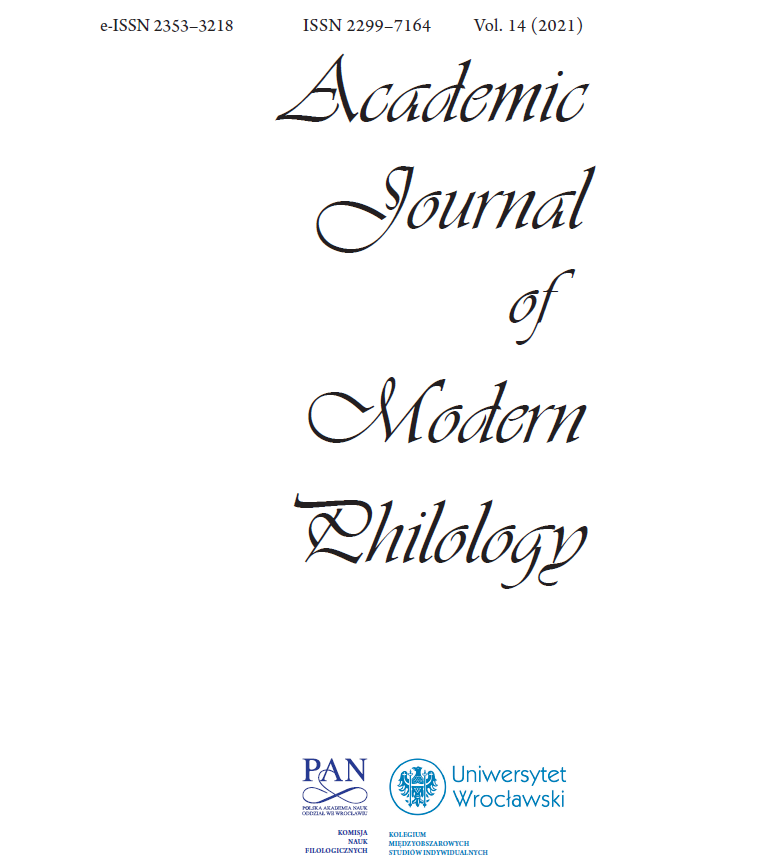Analysing the Paradoxes of Confessional Narrative: An Interpretation of William Golding’s The Paper Men
Analysing the Paradoxes of Confessional Narrative: An Interpretation of William Golding’s The Paper Men
Author(s): Marek PawlickiSubject(s): Language studies, Language and Literature Studies, Literary Texts, Studies of Literature, Philology
Published by: Komisja Nauk Filologicznych Oddziału Polskiej Akademii Nauk we Wrocławiu
Keywords: William Golding; The Paper Men; confessional discourse; irony
Summary/Abstract: The aim of the article is to analyse William Golding’s novel The Paper Men as an example of a modern confessional narrative. It is argued that the narrator of the novel, Wilfred Barclay, is characterised by his ironical stance both with respect to himself, other people, and – what is more important – to his own narrative. This ironical distance makes him a self-conscious narrator who is aware of both the powers and limitations of his confession. By referring to different modes of self-expression, most importantly the legal and the psychoanalytic, Barclay seeks to redefine confessional discourse to suit his own purposes. In his journal, he addresses issues which have always been crucial for authors of both ecclesiastical and secular confessions: free will, sin, damnation and redemption. The present article is a close examination of the above-mentioned issues. It is argued that that the relationship between the two major protagonists of the novel — Wilfred Barclay and Rick L. Tucker — can be treated as a commentary on Golding’s attitude towards literary critics. The conclusion of the article considers The Paper Men against the background of Golding’s views on literature and the creative process
Journal: Academic Journal of Modern Philology
- Issue Year: 2021
- Issue No: 14
- Page Range: 289-297
- Page Count: 9
- Language: English

